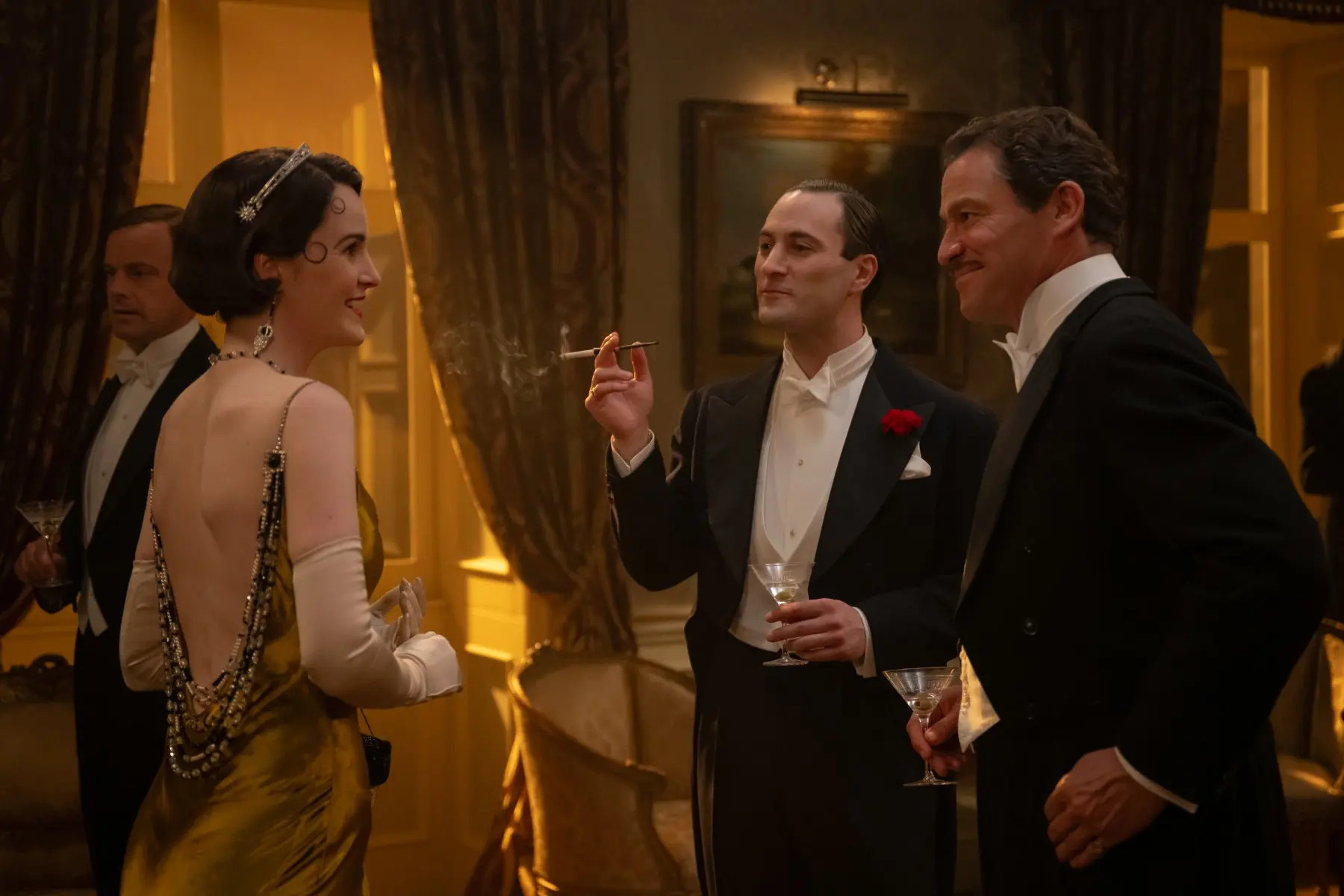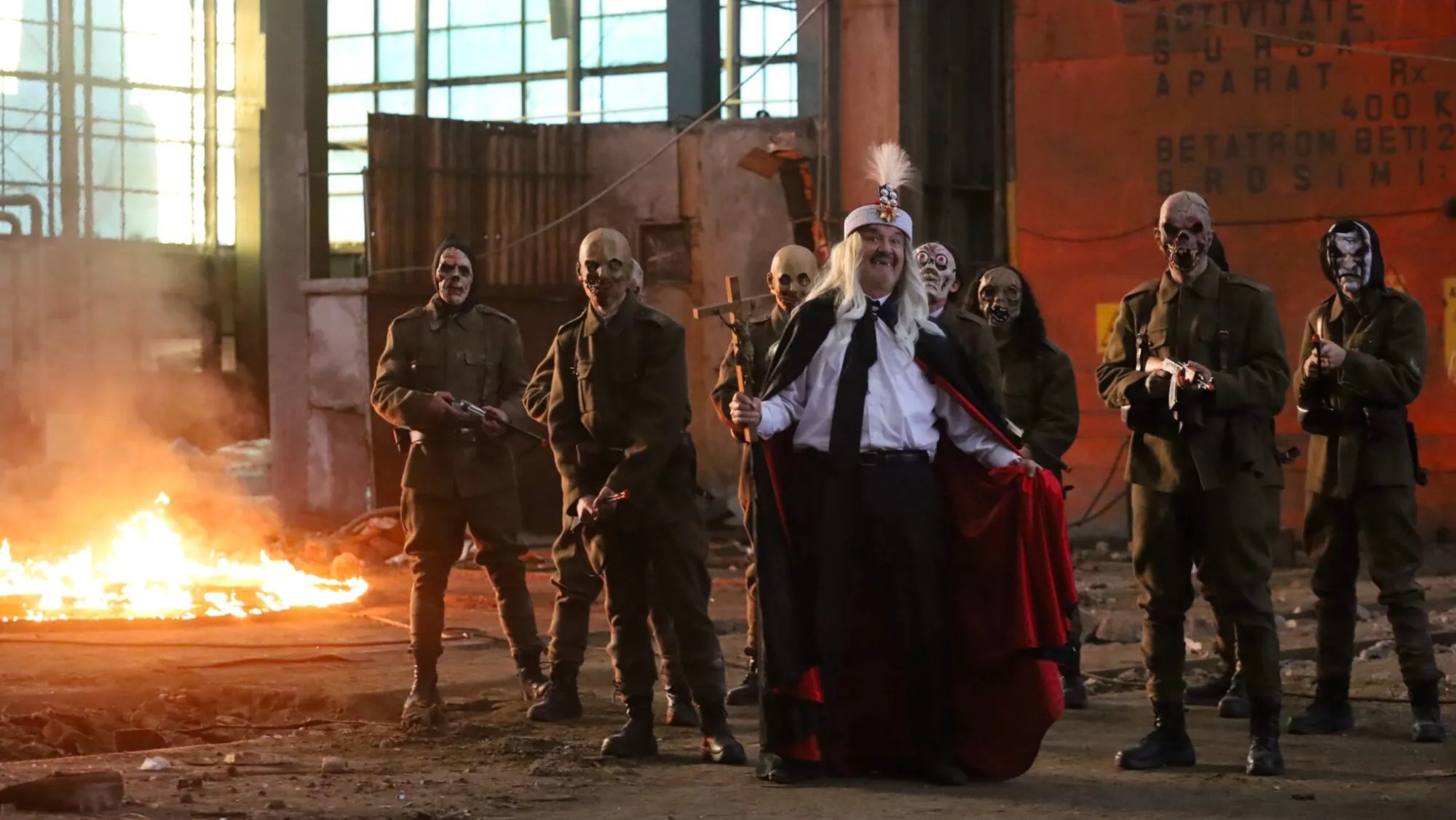![]()
Downton Abbey: The Grand Finale, is the third and final film in the Downton Abbey film series, which means it is also the end of the story which began on television in 2010. The series, which starred Hugh Bonneville, Elizabeth McGovern, Michelle Dockery and many more, are here joined by most of the surviving cast and characters. Created by Julian Fellowes, himself a member of the British gentry, the tale of the Crawley family began in 1912, with the sinking of the Titanic and the loss of the heir apparent. It ends in 1930, shortly after the stock market crash, with the family once again at a moment of potential upheaval.

Courtesy Focus Features
This is a film that, as with the parent series, happily traffics in that special brand of nostalgia and sweetness that the British seem to have perfected, with projects such as Downton Abbey and Call the Midwife. It is a delicate balance, avoiding being corny and off-putting while retaining a sense of love for the era and characters. If anyone has ever doubted this series was a love letter to a bygone era, those thoughts should be put to rest, when one character declares that “it is more comfortable to live in the past than to face the future.”
Directed by Simon Curtis, this is a film that does not stretch the visual boundaries of cinema, but presents what we know from the tv series on a more opulent scale. The pacing is as one has become accustomed to with the series longer, special episodes. There is an A plot, a B plot and a C plot. There are side stories beyond that, and lots of little character moments. This is not a film for non-fans or first-time viewers. This is a finale, complete with summation of theme and arc. In a story about the passage of time and facing the future, how could it be otherwise?

Courtesy Focus Features
Yet, for all the entertainment value here, and the comforting familiarity of the work, there is, truly, nothing new. We have seen every single one of these beats before, and they worked well the first two times we same them, and maybe the third or fourth, but they are predictable. That does not mean they are any less appealing to watch this cast play out-particularly Penelope Wilton and Laura Carmichael, who get some of the juiciest bits-but for those looking at this as some sort of new thing, it is not.
This is comfort food, plain and simple. It is like visiting a very wealthy friend who treats you like family, and whom you get to observe, for a while, and feel a part of, but then must leave, knowing they are there and you are back in your place. In that sense, it does, strangely, mimic the gentler parts of what could be an often brutal class system. If Downton Abbey had any real criticism coming its way, socially, it is the way that Fellowes seems to be trying to engineer empathy for a class of people who often do not show it or seem worthy of fond recollection. This is why the series has always been a fantasy, and in some ways, an apology, for this time and place.

Courtesy Focus Features
These are the lords and ladies we wish we had, but not the ones we would have gotten, and the series seems to try selling us on how delightful it all was. Well, it was not, but surely, these characters are, and for the purposes of visiting them from time to time, that is enough. It is film that once again gets so much right that what it gets cockeyed, or rose tinted, is not as important as the emotions it wrings from a viewer. In that sense, Downton has served as opera, one that is now complete.
Downton Abbey: The Grand Finale is now playing in theaters.








I loved this show. I have yet to see any of the movies, maybe now that they’re complete I’ll have to krum through them.
Very good wrap up to the series. Nice seeing things wrapped up for the characters. Of course even though it was the rich dealing with first world problems, I still enjoyed the entire series and this final movie.
3.5 of 4 stars